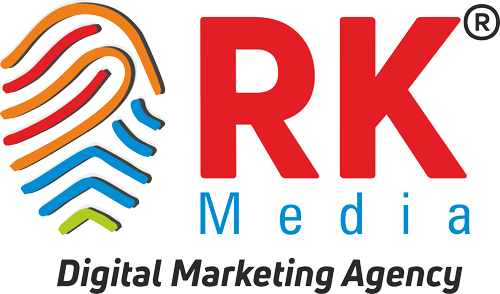The Evolution of Performance Marketing: Insights from Leading Agencies
Introduction
In the fast-paced realm of digital marketing, the evolution of performance marketing has been nothing short of remarkable. From its early stages of click-through rates and cost-per-action models to today’s sophisticated data-driven strategies, performance marketing has continually adapted to meet ever-changing consumer behaviours. This evolution mirrors the dynamic landscape of online advertising, shaping the way businesses connect with their target audience and drive tangible results.
With a focus on measurable outcomes and precise targeting, performance marketing has become an indispensable tool for brands looking to maximize their ROI in an increasingly competitive marketplace. As consumer preferences shift and technology advances, the strategies employed in performance marketing continue to evolve, incorporating AI, machine learning, and advanced analytics to deliver more personalized and effective campaigns.
This article delves into the captivating journey of performance marketing, exploring its pivotal milestones, game-changing trends, and transformative impact on the digital advertising ecosystem.
The Concept of Performance Marketing
Performance marketing is a comprehensive term that refers to online marketing and advertising programs in which advertisers (a.k.a., “retailers” or “merchants”) pay marketing companies (a.k.a., “affiliates” or “publishers”) when a specific action is completed; such as a sale, lead, or click. This form of marketing is entirely results-based — meaning that the advertiser only pays the publisher when their ad generates a specific result. This approach allows for a highly targeted, measurable, and cost-effective method of reaching potential customers.
Performance marketing is a highly accountable and transparent form of marketing and has gained significant traction due to its ability to drive measurable results and its performance-based payment model. It has become the go-to strategy for businesses looking to optimize their marketing budgets and ensure a high return on investment (ROI). The beauty of performance marketing lies in its ability to precisely track and measure the impact of each campaign, making it possible to optimize strategies in real time for maximum effectiveness.
The evolution of performance marketing has been closely intertwined with the rapid advancement of technology and data analytics. As digital platforms and consumer behaviours continue to evolve, performance marketing has adapted to leverage cutting-edge tools and insights, allowing businesses to connect with their target audience in more meaningful and impactful ways.
Traditional Marketing vs. Performance Marketing
Traditional marketing often relies on broad-reaching, non-targeted strategies that cast a wide net in the hopes of capturing potential customers. In contrast, performance marketing focuses on specific actions that consumers take, such as making a purchase or filling out a form. This approach ensures that marketing efforts are directly tied to measurable results, providing a clear understanding of the return on investment for each campaign.
The shift from traditional marketing to performance marketing has been driven by the need for greater accountability and transparency in advertising. By aligning marketing efforts with specific actions, businesses can more accurately allocate their resources and optimize their campaigns for maximum impact. This shift has empowered brands to take a more data-driven approach to marketing, leveraging insights to refine their strategies and drive continuous improvement.
The rise of performance marketing has also reshaped the relationship between advertisers and publishers. With traditional advertising, advertisers often pay for ad space without a guarantee of results. In the performance marketing model, advertisers only pay when a specific action is completed, providing a more equitable and mutually beneficial arrangement for both parties.
Milestones in the Evolution of Performance Marketing
The evolution of performance marketing can be traced back to the early days of online advertising, where the focus was primarily on click-through rates and cost-per-action models. As digital platforms and advertising technologies advanced, performance marketing began to incorporate more sophisticated targeting capabilities, allowing for more precise audience segmentation and personalized messaging.
One of the major milestones in the evolution of performance marketing was the advent of programmatic advertising. This automated, data-driven approach to ad buying revolutionized the digital advertising landscape, enabling advertisers to target their audience with unprecedented precision and efficiency. Programmatic advertising laid the foundation for the data-driven strategies that are now central to performance marketing.
The integration of artificial intelligence (AI) and machine learning into performance marketing has further propelled its evolution, enabling advertisers to leverage predictive analytics and automation to optimize their campaigns in real time. These technological advancements have empowered marketers to deliver more personalized and relevant content to consumers, leading to higher engagement and conversion rates.
The Role of Data and Technology in Performance Marketing
Data and technology have played a pivotal role in shaping the evolution of performance marketing. With the proliferation of digital channels and the vast amount of consumer data available, performance marketers have been able to gain deeper insights into consumer behaviour, preferences, and purchasing patterns. This wealth of data has enabled marketers to create highly targeted and personalized campaigns that resonate with their audience on a more individual level.
The availability of advanced analytics tools has also allowed performance marketers to measure and attribute the impact of their campaigns with unprecedented accuracy. By leveraging data analytics, marketers can track the entire customer journey, from initial engagement to conversion, and gain a comprehensive understanding of the factors that drive success.
In addition to data analytics, technological advancements such as retargeting, dynamic creative optimization, and advanced attribution models have further enhanced the capabilities of performance marketing. These tools and technologies have empowered marketers to deliver more relevant and timely messages to consumers, ultimately driving higher conversion rates and ROI.
Performance Marketing Strategies and Tactics
Performance marketing encompasses a wide range of strategies and tactics that are designed to drive specific actions from consumers. These strategies can include affiliate marketing, influencer partnerships, search engine marketing, social media advertising, and email marketing, among others. Each tactic is tailored to encourage a particular action, such as making a purchase, signing up for a newsletter, or downloading an app.
Affiliate marketing, in particular, has been a cornerstone of performance marketing, allowing businesses to partner with affiliates who promote their products or services in exchange for a commission on sales. This model incentivizes affiliates to drive results, aligning their interests with those of the advertiser.
Influencer marketing has also emerged as a powerful strategy within performance marketing, leveraging the reach and influence of individuals with large and engaged followings to promote products and services. By partnering with influencers who resonate with their target audience, brands can effectively drive awareness and engagement, ultimately leading to conversions.
Search engine marketing (SEM) and social media advertising is integral to performance marketing, enabling advertisers to reach consumers at various stages of the purchase funnel with targeted and relevant messaging. These tactics leverage data and technology to deliver ads to consumers who are most likely to take a desired action, maximizing the impact of marketing efforts.
Key Performance Indicators (KPIs) in Performance Marketing
Key performance indicators (KPIs) are essential metrics that performance marketers use to assess the effectiveness of their campaigns and optimize their strategies. Common KPIs in performance marketing include conversion rate, return on ad spend (ROAS), cost per acquisition (CPA), click-through rate (CTR), and customer lifetime value (CLV), among others. These KPIs provide valuable insights into the performance of marketing campaigns and guide decision-making to drive better results.
Conversion rate is a critical KPI that measures the percentage of users who take a desired action, such as making a purchase or completing a form. A high conversion rate indicates that the campaign is effectively engaging and persuading consumers to take action.
ROAS is a KPI that measures the revenue generated for every dollar spent on advertising. This metric is crucial for assessing the overall profitability of marketing campaigns and optimizing budget allocation.
CPA is a key metric that calculates the cost of acquiring a customer. By tracking CPA, marketers can understand the efficiency of their acquisition efforts and make informed decisions about resource allocation.
CTR measures the percentage of users who click on an ad after seeing it. A high CTR indicates that the ad is resonating with the target audience and driving engagement.
CLV is a KPI that estimates the total revenue a business can expect from a single customer throughout its relationship. By understanding and maximizing CLV, marketers can focus on acquiring high-value customers and nurturing long-term relationships.
Performance Marketing Tools and Platforms
The success of performance marketing relies heavily on the use of advanced tools and platforms that enable marketers to execute, track, and optimize their campaigns. These tools encompass a wide range of capabilities, including ad serving, tracking, analytics, and attribution. They provide marketers with the insights and resources needed to drive successful performance marketing campaigns.
Ad-serving platforms play a crucial role in delivering targeted ads to the right audience at the right time. These platforms enable advertisers to manage and optimize their ad inventory across various digital channels, ensuring that their messages reach the most relevant consumers.
Tracking and analytics tools are essential for monitoring the performance of marketing campaigns and gaining valuable insights into consumer behaviour. These tools provide marketers with real-time data on campaign performance, allowing for continuous optimization and refinement.
Attribution platforms are instrumental in determining the impact of each touchpoint in the customer journey and understanding the contributions of various marketing channels to conversions. By leveraging attribution models, marketers can allocate their resources more effectively and optimize their media mix for maximum impact.
The Future of Performance Marketing
As technology continues to advance and consumer behaviours evolve, the future of performance marketing holds immense potential for innovation and growth. The integration of AI and machine learning will further enhance the capabilities of performance marketing, enabling marketers to deliver even more personalized and impactful campaigns.
The increasing emphasis on privacy and data protection will also shape the future of performance marketing, necessitating a more transparent and ethical approach to data collection and usage. Marketers will need to prioritize building trust with consumers by delivering relevant content while respecting their privacy preferences.
The convergence of online and offline channels will present new opportunities for performance marketing, allowing marketers to create seamless, omnichannel experiences that drive engagement and conversions across various touchpoints.
Case Studies
1: e-commerce Brand X
E-commerce Brand X leveraged a performance marketing strategy that focused on influencer partnerships and affiliate marketing to drive sales. By collaborating with high-profile influencers and strategic affiliates, the brand was able to reach a highly targeted audience and achieve a significant increase in sales. The performance-based payment model ensured a strong return on investment, making it a successful campaign for the brand.
2: Mobile App Y
Mobile App Y implemented a performance marketing campaign that centred on app install ads and retargeting. By leveraging advanced targeting capabilities and personalized messaging, the app was able to drive a high volume of installs and re-engagement from lapsed users. The data-driven approach to performance marketing resulted in a substantial increase in app usage and retention.
Conclusion
The evolution of performance marketing has been driven by the relentless pursuit of measurable results and the adaptation to ever-changing consumer behaviours. From its early stages of click-through rates and cost-per-action models to today’s sophisticated data-driven strategies, performance marketing has continuously evolved to meet the demands of a dynamic digital landscape.
As technology continues to advance and consumer expectations evolve, performance marketing will remain at the forefront of digital advertising, shaping the way brands connect with their audience and drive tangible results. With a focus on accountability, transparency, and precision, performance marketing will continue to be an indispensable tool for businesses seeking to maximize their ROI and deliver impactful campaigns. The future of performance marketing holds boundless opportunities for innovation, driven by advanced technology, data insights, and a relentless commitment to delivering value to both advertisers and consumers.
As the digital landscape continues to evolve, the collaborative efforts of agencies like RK Media serve as beacons, guiding marketers toward strategies that not only meet but exceed expectations. The evolution of performance marketing is an ongoing narrative, and the lessons gleaned from leading agencies emphasize the significance of agility, creativity, and strategic thinking in navigating the complex, yet rewarding, realm of digital marketing.
Image Reference: Freepik
Disclaimer: All trademarks, logos, and brand names are the property of their respective owners. All company, product, and service names used in this website are for identification purposes only. Use of these names, trademarks, and brands does not imply endorsement.



















